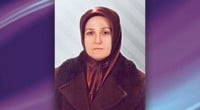Gülen won’t change his stand, urges followers’ patience

Date posted: August 4, 2014
Turkish Islamic scholar Fethullah Gülen vowed to defend what he believes despite an organized attack by the government of Prime Minister Recep Tayyip Erdoğan that employs hate speech, slander and outright lies in order to discredit him and members of the Hizmet movement.
He asked his followers to not respond in kind to smear campaigns supported by the Erdoğan government, saying that everybody behaves according to their own character.
In a speech published on herkul.org on Monday, a website that usually broadcasts his speeches, Gülen said he did not speak for months, partly because he did want to appear to be responding directly to so much slander and so many lies that have been told against him. He said part of the reason for his long silence also has to do with his health problems.
Recalling that the Hizmet movement had experienced difficult periods before, he urged his followers to be patient in the face of these relentless attacks — which are totally uncalled for. He said he was prosecuted and persecuted during the coup eras, including those of 1960, 1971, 1980 and 1997, and survived with the grace of Allah.
“We have taken an oath in Allah to not backtrack. May Allah take our lives if we are to backtrack [on that pledge],” he vowed, stressing that the attainment of Allah’s pleasure must be the ultimate goal.
Gülen and his Hizmet movement are being targeted in a major smear campaign run by media organs owned and run by the Justice and Development Party (AK Party) government, publishing stories saying that the scholar and his movement are part of a clandestine organization that is seeking to overthrow the government.
Prime Minister Recep Tayyip Erdoğan and some officials of his government have been making similar claims and even insulting Gülen and the Hizmet movement. On various occasions, the prime minister has called Gülen a “false prophet,” “fake saint” and a “bogus scholar.” He has called the Hizmet movement a “parallel state,” “gang,” “illegal organization” “leech” and “raving Hashashins” — referring to an order of assassins.
The Islamic scholar said that faithful Muslims have always been tested by worldly possessions, their children, tyrants and rulers who were poisoned with absolute power. “You have to put up with these if you knowingly enter onto this path,” he emphasized, adding that prophets, saints and pious Muslims have all suffered at the hands of oppressive rulers.
Erdoğan’s hatred of Gülen stems from the scholar’s refusal to turn a blind eye to allegations of corruption that were exposed on Dec. 17 of last year. He criticized Erdoğan’s government for failing to take measures to tackle graft allegations despite early warnings from state agencies.
“If there are acts of bribery, theft, clientelism, bid rigging, etc., which run contrary to the interests of the nation, and if these acts are covered up, God will hold us accountable for them. But it appears that some people nurtured certain expectations,” Gülen said in an interview in March.
“If among those who conducted the graft investigations were some people who might be connected to the Hizmet movement, was I supposed to tell these people, ‘Turn a blind eye to the corruption charges’?” he asked, adding: “It appears to me that some people were expecting me to do this. Did they expect me to do this? How can I say something that would ruin my afterlife? How else can I act?”
Gülen underlined that “the government did not take measures against corruption. But when the police operations were launched under the graft probe of Dec. 17, they apparently thought they could get away [with it] by leveling accusations against certain people or groups,” he explained.
Rehashing old claims
Gülen also described the Erdoğan government attempts to indict him on similar charges that he was acquitted before as a “neo-indictment” that rehashed old claims from the case that fell apart.
He recalled his encounter with a chief prosecutor in New Jersey who took his testimony on behalf of the Turkish government that sent a questionnaire through the Department of Justice. He said the US prosecutors were puzzled with the questions his Turkish colleague posed to Gülen and laughed at them. “These are funny questions,” he said. “If he had witnessed today’s events, he would have passed out from laughing,” Gülen noted.
The legal case brought against Gülen by prosecutor Nuh Mete Yüksel who filed the indictment in the aftermath of the Feb. 28, 1997 coup lasted for years. Gülen’s testimony was taken by New Jersey’s federal prosecutor, who reviewed the indictment against him and sent a report to judges in Turkey. Gülen said that that report, which indicated that the allegations in the indictment were ludicrous, was key in his acquittal on all charges.
Gülen said now the Erdoğan government is trying to bring similar charges against him.
The earlier indictment that was filed by Yüksel on Aug. 30, 2000 in the controversial Ankara State Security Court (DGM) demanded Gülen’s conviction on terror charges, alleging that Gülen had been involved in activities to establish an illegal organization in order to create a state based on religion by changing the secular state.
The indictment made no reference whatsoever to any concrete action constituting a crime as spelled out in the Counterterrorism Law. Instead, the charges in the indictment were based on Gülen’s views as expressed in print and visual media as well as his social activities. In other words, his ideas and beliefs constituted the basis for the charges against him. The Ankara 11th High Criminal Court on May 5, 2006, decided to acquit Gülen following the trial due to unsubstantiated claims. An appeal was filed with the 9th Chamber of the Supreme Court of Appeals, which unanimously upheld Gülen’s acquittal by the Ankara 11th High Criminal Court on March 5, 2008.
The Office of the Prosecutor at the Supreme Court of Appeals objected to this verdict on April 4, 2008, under Article 308 of the Code on Criminal Procedure (CMK). The chamber, however, dismissed the objection by the office of the prosecutor on June 24, 2008. In this way, the acquittal was approved and finalized.
Source: Today's Zaman , August 04, 2014, Monday
Tags: Defamation of Hizmet | Fethullah Gulen | Hizmet and politics |
























